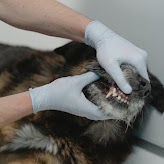Maintaining good dental health is vital for your dog's overall well-being. Just like humans, dogs can suffer from dental issues that can cause pain, discomfort, and even lead to more serious health problems. Establishing a regular dental care routine is essential in preventing dental diseases and ensuring your furry friend has a healthy and happy smile. This article will guide you through the importance of dental care for dogs, signs of dental problems to watch out for, and provide you with practical tips and techniques to properly care for your dog's teeth at home. By following these guidelines, you can help your canine companion maintain strong teeth, fresh breath, and optimal oral health.
The Importance of Dental Care for Dogs
Taking care of your dog's teeth may not be the most glamorous task, but it's a crucial part of their overall health and well-being. Just like humans, dogs can suffer from dental problems that can cause pain, discomfort, and even more serious health issues if left untreated. By prioritizing dental care, you can ensure that your furry friend's pearly whites stay in tip-top shape for years to come.Understanding the Impact of Poor Dental Health
Poor dental health in dogs can have wide-ranging effects on their overall health. It can lead to gum disease, tooth decay, and even tooth loss. When bacteria build up in the mouth, it can spread to other parts of the body, potentially causing infections in vital organs such as the heart, liver, and kidneys. Additionally, dental issues can make it difficult for your dog to eat, resulting in weight loss and malnutrition. So, taking care of those canine canines isn't just about aesthetics - it's about ensuring your dog's overall health.Benefits of Regular Dental Care for Dogs
Regular dental care has numerous benefits for your furry friend. By keeping their teeth clean and their gums healthy, you can prevent the development of painful dental problems. It also helps freshen your dog's breath, making those close cuddle sessions much more pleasant. Moreover, proper dental hygiene can save you money in the long run by avoiding costly dental procedures down the line. So, a little effort now can go a long way in keeping your dog's smile bright and their tail wagging.Signs of Dental Problems in Dogs
While dogs can't complain about toothaches, they do show signs when they are experiencing dental problems. It's important to be aware of these signs so you can take action promptly and prevent further discomfort for your furry companion.Identifying Common Dental Issues
Some common dental problems in dogs include inflamed gums, tartar buildup, loose or broken teeth, and bad breath. Keep an eye out for these issues during your dog's regular dental check-ups, and if you notice any abnormalities, it's time to take action.Behavioral Signs of Dental Problems
Dogs may exhibit behavioral changes if they are experiencing dental pain. Look out for signs such as reluctance to eat or chew on toys, pawing at the mouth, excessive drooling, or changes in appetite. If your dog is acting out of the ordinary, it's worth investigating their dental health.Oral Symptoms to Watch Out For
When it comes to dental problems, dogs can't exactly tell you what's wrong. So, it's important to pay attention to their oral symptoms. Red or bleeding gums, discolored teeth, swollen mouth, or visible tartar are all signs that your dog may be dealing with dental issues. If you spot any of these symptoms, it's time for a trip to the vet.Establishing a Dental Care Routine for Your Dog
Now that you understand the importance of dental care and how to identify potential problems, it's time to establish a dental care routine for your furry friend.Introducing Dental Care to Your Dog
Introducing dental care may not be your dog's favorite activity, but with some patience and positive reinforcement, you can make it a stress-free experience. Start by gently touching their mouth and gradually introduce them to the toothbrush and toothpaste. Remember, a little treat afterward can go a long way in making dental care a positive experience.Creating a Daily Dental Care Schedule
Consistency is key when it comes to dental care. Aim for daily brushing sessions, but if that seems overwhelming, even a few times a week can make a difference. Pick a time when your dog is relaxed, and make it a part of your regular routine. Creating a schedule will help you stay committed to your dog's dental health and ensure they receive the care they need.Proper Brushing Techniques for Your Dog's Teeth
Now that you've established a dental care routine, let's dive into the nitty-gritty of proper brushing techniques for your dog's teeth.Choosing the Right Toothbrush and Toothpaste
When it comes to choosing a toothbrush, opt for one that is specifically designed for dogs. These brushes have softer bristles and are more comfortable for your furry friend. Additionally, never use human toothpaste as it can be harmful to dogs. Instead, go for toothpaste formulated for dogs, available in various flavors to make it more appealing to your pup.Step-by-Step Guide to Brushing Your Dog's Teeth
Brushing your dog's teeth may require some patience and practice, but with these steps, you'll be a pro in no time. Start by lifting your dog's lip and gently brushing the outer surfaces of their teeth in a circular motion. Focus on the gumline, as that's where bacteria tend to accumulate. Gradually increase the brushing time as your dog becomes more comfortable. Remember to praise and reward your dog throughout the process to make it a positive experience for both of you.Tips for Making Brushing a Positive Experience
To make brushing a pleasant experience, it's essential to keep it positive and stress-free. Use treats, praise, and lots of love to reward your dog during and after the brushing session. If your dog seems particularly anxious or resistant, consider using dental chews or toys that promote oral health. And always remember, a little humor and patience can go a long way when it comes to caring for your dog's teeth. So, embrace the process and enjoy those pearly whites!Choosing the Right Dental Products for Your Dog
Understanding Different Dental Products
Taking care of your dog's dental health is just as important as taking care of your own. But with so many dental products on the market, how do you know which ones are right for your pup? Let's break it down. Toothpaste: Just like humans, dogs need their teeth brushed regularly. However, never use human toothpaste for your furry friend, as it contains ingredients that can be harmful to them. Opt for toothpaste specially formulated for dogs, which often come in flavors like chicken or peanut butter to make brushing more enjoyable. Toothbrush: Dog toothbrushes come in various sizes and shapes, so choose one that is appropriate for your dog's size. You can even find toothbrushes that slip onto your finger, making it easier to brush those hard-to-reach spots. Dental wipes: If your dog is not a fan of toothbrushes, dental wipes can be a helpful alternative. These wipes are designed to remove plaque and freshen breath, and they can be an excellent option for dogs who are resistant to traditional brushing.Selecting the Appropriate Chew Toys
Chewing is a natural behavior for dogs, and it can actually help keep their teeth clean. When selecting chew toys for your furry friend, opt for ones that are specifically designed to promote dental health. Look for toys that are made from durable materials, like rubber or nylon, and have grooves or bumps that can help remove plaque and tartar. Avoid toys that are too hard or can easily break into small pieces, as they can pose a choking hazard or damage your dog's teeth. Always supervise your dog while they are chewing to ensure their safety.Exploring Dental Treats and Water Additives
In addition to regular brushing and chewing, dental treats and water additives can be valuable tools in maintaining your dog's oral hygiene. Dental treats: These treats are specially formulated to help reduce plaque and tartar buildup. Look for treats that have a seal of approval from veterinary dental associations and choose the size that suits your dog's breed and weight. Remember, treats should be given in moderation to prevent weight gain. Water additives: Adding dental water additives to your dog's water bowl can help fight bacteria and freshen their breath. These additives contain ingredients like enzymes or antimicrobial agents that can help prevent plaque and tartar formation. Simply add the recommended dosage to your dog's water, and they'll have fresher breath in no time. Remember to consult with your veterinarian before introducing any new dental products to ensure they are safe and suitable for your dog's specific needs.Professional Dental Cleanings for Dogs
When to Consider Professional Dental Cleanings
Just like humans, dogs may require professional dental cleanings to maintain their oral health. If you notice any signs of dental issues, such as bad breath, excessive drooling, swollen gums, or difficulty chewing, it's time to consider a professional cleaning. Additionally, some dogs are more prone to dental problems due to genetics or other factors. Your veterinarian can assess your dog's dental health and recommend professional cleanings as needed.What to Expect During a Dental Cleaning
During a professional dental cleaning, your dog will be placed under anesthesia to ensure their comfort and safety. The veterinarian will thoroughly examine your dog's teeth and gums, remove plaque and tartar buildup, and polish their teeth to make them shiny and smooth. X-rays may also be taken to assess the health of the teeth below the gumline. If any issues are found, such as loose teeth or infections, the veterinarian may perform extractions or other necessary procedures.Benefits and Risks of Professional Cleanings
Professional dental cleanings can significantly improve your dog's oral health and prevent more serious dental issues down the road. By removing plaque and tartar buildup, professional cleanings help prevent gum disease and tooth decay, ensuring your furry friend can enjoy a happy, pain-free smile. However, it's important to note that anesthesia is involved in professional dental cleanings, which carries some risks. Your veterinarian will evaluate your dog's health and determine if they are a suitable candidate for anesthesia. In most cases, the benefits of professional cleanings far outweigh the potential risks. Remember to discuss any concerns or questions with your veterinarian before scheduling a professional dental cleaning for your dog.Alternative Dental Care Options for Dogs
Exploring Natural and Homemade Dental Remedies
If you prefer natural or homemade remedies for your dog's dental care, there are several options to consider. Dental hygiene sprays: These sprays contain natural ingredients like peppermint oil or grapefruit seed extract, which can help freshen your dog's breath and fight bacteria. Simply spray the solution onto your dog's teeth and gums, following the instructions on the product. Coconut oil: Coconut oil has natural antibacterial properties and can be beneficial for your dog's oral health. You can rub a small amount of coconut oil on your dog's teeth or mix it into their food. Dental chews: Some natural dental chews are made from ingredients like sweet potato or dried herbs, which can help promote dental health. However, be cautious when selecting natural chews, as some may still pose a choking or digestive risk. Always consult with your veterinarian before using any alternative dental care options to ensure they are safe and appropriate for your dog.Considering Water Additives and Oral Sprays
Water additives and oral sprays are not only available in commercial form but can also be made at home using natural ingredients. These options can provide a convenient and easy way to maintain your dog's oral hygiene. Water additives: By adding natural ingredients like apple cider vinegar or herbal extracts to your dog's water bowl, you can help reduce bacteria and freshen their breath. Be sure to follow the recommended dosage and consult with your veterinarian before using any homemade water additives. Oral sprays: Homemade oral sprays can be made using ingredients like baking soda and water, which can help fight bacteria and maintain oral hygiene. Simply spray the solution onto your dog's teeth and gums, avoiding their eyes and nose. Remember to monitor your dog's reaction to any homemade dental care options and discontinue use if any adverse effects occur. It's always best to consult with your veterinarian to ensure you are using safe and effective alternatives.Preventing Dental Issues with a Healthy Diet and Chewing Habits
Importance of Proper Nutrition for Dental Health
A healthy diet plays a vital role in your dog's overall well-being, including their dental health. Providing your pup with a balanced diet that includes high-quality food can help support strong teeth and gums. Opt for dog food that is specifically formulated for dental health, as these often have a texture or ingredients that can help remove plaque and tartar. Avoid feeding your dog excessive amounts of sugary or sticky treats, as they can contribute to tooth decay.Choosing Dental-Friendly Foods and Treats
Certain foods and treats can have a positive impact on your dog's oral health. Look for dental-friendly options, such as dry kibble orIn conclusion, caring for your dog's teeth is a responsibility that should not be overlooked. By understanding the importance of dental care, recognizing the signs of dental problems, and implementing a proper dental care routine, you can significantly contribute to your dog's overall health and well-being. Remember to consult with your veterinarian for any specific concerns or questions regarding your dog's dental health. With regular care, attention, and love, you can ensure that your beloved four-legged friend enjoys a lifetime of healthy teeth and a bright smile.
Frequently Asked Questions
1. How often should I brush my dog's teeth?
It is recommended to brush your dog's teeth at least 2-3 times a week. However, daily brushing is ideal for optimal dental care. Consistency is key to maintaining good oral hygiene for your dog.
2. What should I do if my dog resists tooth brushing?
If your dog is resistant to tooth brushing, start by introducing them to the process gradually. Use positive reinforcement, reward-based training, and patience. You can also try using dental wipes or finger brushes as an alternative. Consult with your veterinarian for additional guidance and tips on making tooth brushing a positive experience for your dog.
3. Are dental treats and chew toys effective in maintaining dental health?
Yes, dental treats and chew toys can be effective in promoting good dental health. They can help in reducing plaque and tartar buildup by encouraging chewing and saliva production. Look for dental treats that are specifically designed to promote dental hygiene and choose chew toys that are safe for your dog's teeth.
4. When should I consider professional dental cleanings for my dog?
Professional dental cleanings are typically recommended when there is a significant buildup of tartar, gum disease, or other dental issues. Your veterinarian will assess your dog's dental health during regular check-ups and recommend professional cleanings if necessary. It is important to follow their advice and schedule cleanings as needed to prevent further complications.





